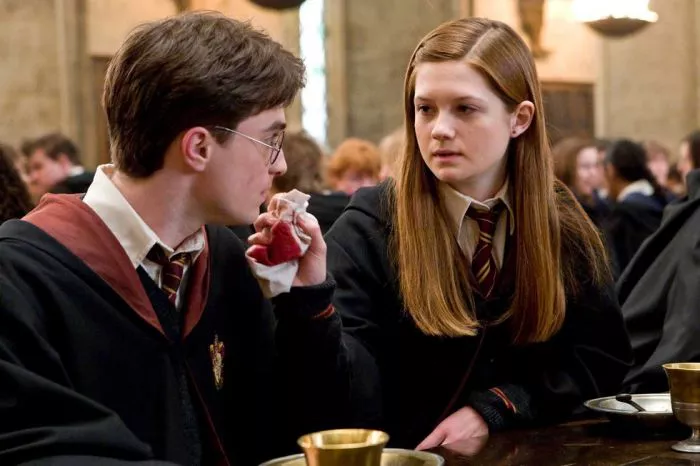The decision to adapt J.K. Rowling’s beloved Harry Potter novels into a film series was a momentous one that would forever change the landscape of cinema and captivate audiences around the world. But what factors led to the creation of the Harry Potter movies, and why did they become such a cultural phenomenon? In this exploration, we’ll delve into the magic behind the movies and uncover the reasons why Harry Potter became a cinematic sensation.
1. Phenomenal Popularity of the Books
One of the primary reasons behind the decision to adapt the Harry Potter novels into films was the phenomenal popularity of the books themselves. Since the release of the first book, “Harry Potter and the Philosopher’s Stone” (published as “Harry Potter and the Sorcerer’s Stone” in the United States), in 1997, the series had taken the world by storm, captivating readers of all ages with its enchanting storytelling, richly imagined world, and memorable characters. The books became a global sensation, topping bestseller lists and garnering critical acclaim, making it inevitable that they would eventually be adapted for the big screen.
2. Success of Fantasy Films
Another factor that influenced the decision to adapt the Harry Potter novels into films was the success of fantasy films in the late 20th and early 21st centuries. Films such as “The Lord of the Rings” trilogy, “The Chronicles of Narnia,” and “The Golden Compass” had demonstrated the immense appeal of fantasy storytelling to audiences around the world. The success of these films paved the way for other fantasy adaptations, making it clear that there was a significant market for magical and fantastical stories on the big screen.
3. Potential for Visual Spectacle
The Harry Potter novels were filled with richly imagined settings, magical creatures, and fantastical elements that lent themselves perfectly to visual spectacle. From the majestic halls of Hogwarts School of Witchcraft and Wizardry to the bustling streets of Diagon Alley, the wizarding world was ripe for cinematic adaptation, offering filmmakers the opportunity to bring J.K. Rowling’s imaginative creations to life in stunning detail. The potential for breathtaking visuals and epic set pieces was a key factor in the decision to adapt the Harry Potter novels into films, as filmmakers recognized the opportunity to create a visually immersive and awe-inspiring cinematic experience.
4. Collaborative Efforts of Studios and Filmmakers
The successful adaptation of the Harry Potter novels into films was made possible through the collaborative efforts of studios, filmmakers, and creative talent. Warner Bros. Pictures acquired the film rights to the Harry Potter series in 1999, recognizing the immense potential of the franchise for cinematic adaptation. The studio assembled a talented team of filmmakers, including directors, screenwriters, producers, and designers, who worked closely with author J.K. Rowling to bring her vision to the big screen. The collaborative efforts of these individuals ensured that the films remained faithful to the spirit of the books while also offering a fresh perspective and cinematic flair.
5. Desire to Reach New Audiences
Adapting the Harry Potter novels into films provided an opportunity to introduce the beloved stories to new audiences who may not have read the books. While the books had already amassed a devoted fanbase of readers, the films offered a way to reach a broader audience of moviegoers who may not have been familiar with the series. The films served as a gateway for new fans to discover the magical world of Harry Potter and become immersed in its enchanting storytelling, captivating characters, and epic adventures.
6. Cultural Impact and Legacy
The cultural impact and legacy of the Harry Potter series played a significant role in the decision to adapt the novels into films. By the time the first film was released in 2001, the books had already become a cultural phenomenon, inspiring fan conventions, merchandise, theme park attractions, and more. The films capitalized on this cultural momentum, further cementing the legacy of Harry Potter as one of the most beloved and enduring franchises in literary and cinematic history. The success of the films ensured that the magic of Harry Potter would continue to enchant audiences for generations to come, leaving a lasting impact on popular culture.
In conclusion, the decision to adapt the Harry Potter novels into films was influenced by a combination of factors, including the phenomenal popularity of the books, the success of fantasy films, the potential for visual spectacle, collaborative efforts of studios and filmmakers, desire to reach new audiences, and the cultural impact and legacy of the series. Together, these factors transformed Harry Potter from a beloved literary phenomenon into a cinematic sensation, captivating audiences around the world and leaving an indelible mark on popular culture that continues to endure to this day.
Related Topics:
What Makes the Harry Potter Movies So Special?
5 Reasons Why Harry Potter and the Prisoner of Azkaban is the Best Harry Potter Movie
Why Harry Potter and the Prisoner of Azkaban Might Be the Dopest Harry Potter Movie

